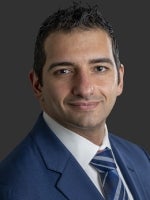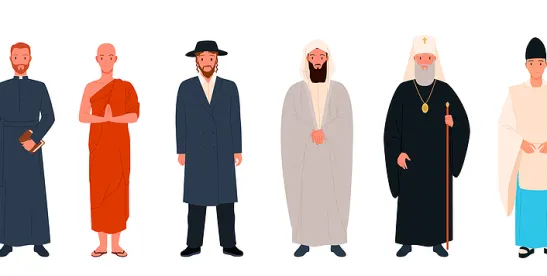The Religious Workforce Protection Act is a bipartisan legislative initiative introduced on April 8, 2025, by U.S. Senators Susan Collins (R-Maine), Tim Kaine (D-Virginia), and Jim Risch (R-Idaho). This bill aims to address significant challenges faced by foreign-born religious workers in the United States, particularly those hindered by visa backlogs, by proposing extensions to the R-1 nonimmigrant visa status and facilitating reentry for affected individuals.
Background: The Role of Foreign-Born Religious Workers & the Diocese of Paterson
Religious organizations across the U.S. rely heavily on foreign-born clergy and religious workers to serve their communities. For instance, in Idaho, nearly 25% of clergy members are foreign-born, highlighting their integral role in maintaining the vitality of faith communities. These individuals often enter the U.S. on R-1 visas, designated for nonimmigrant religious workers, with the intention of eventually obtaining permanent residency through the EB-4 visa category.
Diocese of Paterson v. U.S. Department of State Takes a Stand
In August 2024, the Diocese of Paterson, New Jersey, along with five of its priests, initiated a lawsuit against the U.S. Department of State, the Department of Homeland Security, and the U.S. Citizenship and Immigration Services. This legal action challenges recent modifications to the EB-4 visa program, which have introduced significant obstacles for foreign-born religious workers seeking permanent residency in the United States.
Background of the Lawsuit
The EB-4 visa category, designated for special immigrants including religious workers, has undergone procedural changes that have led to substantial backlogs. Specifically, in March 2023, the U.S. government integrated applicants from certain countries, such as Guatemala, Honduras, and El Salvador, into the same visa queue as religious workers. This integration, coupled with the existing annual cap of 10,000 green cards for the EB-4 category, has resulted in prolonged waiting periods for religious workers seeking permanent residency.
The Diocese of Paterson, serving approximately 400,000 Catholics across 107 parishes, relies heavily on foreign-born clergy to address the shortage of domestic vocations. The diocese asserts that the recent visa changes jeopardize the ability of these priests to continue their ministry, potentially leading to their abrupt departure from the U.S. The lawsuit emphasizes that such departures would disrupt the spiritual guidance provided to thousands of parishioners.
Implications for Religious Communities
The procedural changes have broader implications beyond the Diocese of Paterson. Religious organizations nationwide, including the U.S. Conference of Catholic Bishops, have expressed concerns about the sustainability of their ministries under the current visa constraints. Bishop Mark Seitz of El Paso highlighted the disruptive nature of these changes, noting that priests facing visa expirations are compelled to leave their congregations, leaving communities without essential spiritual leadership.
Legal Arguments Presented
The lawsuit, brought by Attorney Raymond G. Lahoud of Lahoud Law Group, P.C., contends that the U.S. government’s implementation of the visa changes violated the Administrative Procedure Act by not providing appropriate notice and opportunity for public comment. It further argues that the alterations infringe upon the religious freedoms of the affected clergy and their congregations by hindering their ability to practice their faith and maintain consistent spiritual leadership.
As of April 2025, the lawsuit remains pending in the U.S. District Court in Newark, New Jersey. This legal action underscores the ongoing challenges faced by religious institutions in navigating immigration policies that directly impact their operations and the well-being of their communities. The outcome of this case may set a precedent for how similar situations are addressed in the future, highlighting the critical intersection of immigration policy and religious practice in the United States.
Provisions of the Religious Workforce Protection Act
The Religious Workforce Protection Act introduces targeted measures to alleviate these challenges:
- Extension of R-1 Visa Duration: The act grants the Secretary of Homeland Security the authority to extend R-1 nonimmigrant status beyond the current five-year limit for religious workers already in the U.S. This extension allows them to continue their service without interruption while their permanent residency applications are processed.
- Reentry for Departed Religious Workers: Religious workers who were compelled to leave the U.S. due to visa expirations and processing delays would be permitted to reenter the country under this legislation, ensuring that faith communities can retain their essential personnel.
- Limited Job Flexibility: The bill allows for limited job flexibility for religious workers awaiting decisions on their EB-4 applications. This provision ensures that these workers do not have to restart the lengthy permanent residence process due to changes in their employment, such as moving to a different parish or receiving a promotion.
Support from Religious Communities
The Diocese of Boise has expressed strong support for the act, emphasizing that the current visa constraints jeopardize the continuity of religious services across its vast territory. Bishop Peter F. Christensen noted that with only 79 priests serving the diocese, the forced departure of foreign-born clergy due to visa issues would create significant challenges.
Other religious organizations have also voiced their backing:
- U.S. Conference of Catholic Bishops (USCCB): Bishop Mark J. Seitz of El Paso, chairman of the USCCB Committee on Migration, stated, “We applaud this bipartisan effort, which recognizes the importance of foreign-born religious workers in communities across our nation. Without them, many Americans would be left without the essential religious and social services they provide.”
- National Association of Evangelicals: Galen Carey, vice president of government relations, remarked, “Religious communities unite and serve believers of multiple nationalities. It is important that our leaders have the freedom to serve across national boundaries, and that our churches have access to staff with the expertise they need.”
- U.S. Council of Muslim Organizations (USCMO): Secretary General Oussama Jammal expressed, “This crucial legislation addresses the hardships faced by religious workers and institutions due to the EB-4 backlog, ensuring that faith communities across the nation can continue to thrive and serve.”
- Hindu American Foundation: Managing Director Samir Kalra noted, “The Hindu American Foundation is proud to support the Religious Workforce Protection Act, a common sense solution to ensuring that nonimmigrant religious workers on R-1 visas can continue to stay in the U.S. and serve the spiritual needs of their respective religious communities.”
Legislative Outlook and Implications
The introduction of the Religious Workforce Protection Act reflects a bipartisan commitment to addressing the challenges faced by religious workers and the communities they serve. By facilitating uninterrupted service of religious workers, the act seeks to uphold the vitality of faith communities and ensure that congregations nationwide have access to consistent spiritual leadership. As the bill progresses through the legislative process, its potential impact on religious organizations and their ability to serve their communities remains a focal point for stakeholders across the nation.
Conclusion
The Religious Workforce Protection Act stands as a testament to the collaborative efforts of lawmakers and religious organizations to address the pressing needs of faith communities. By proposing practical solutions to visa-related challenges, the act aims to ensure that religious workers can continue their invaluable service without undue interruption, thereby enriching the spiritual and communal life of congregations across the United States.




 />i
/>i
